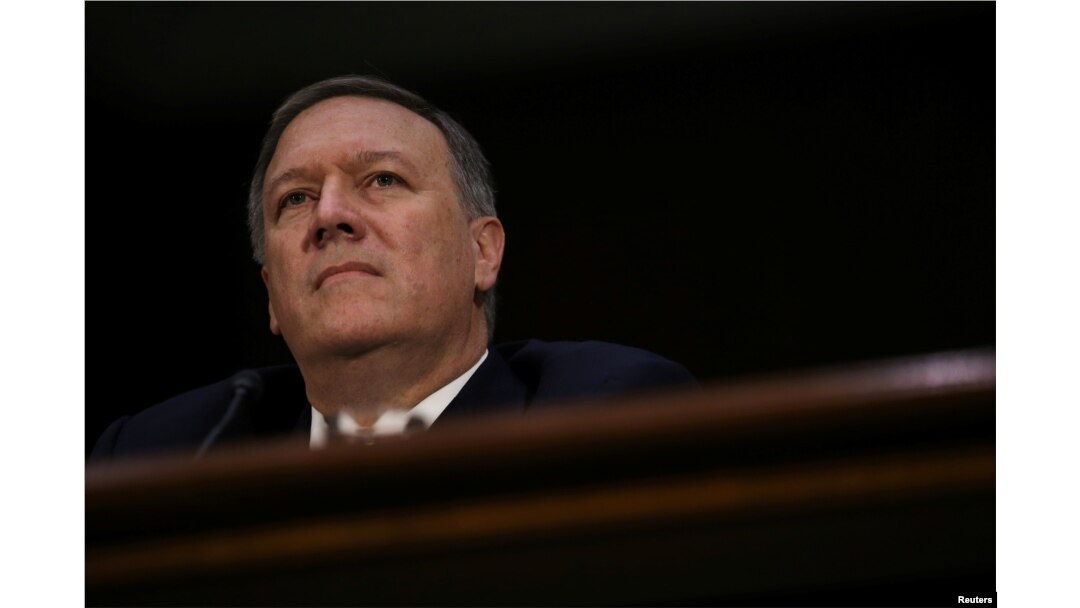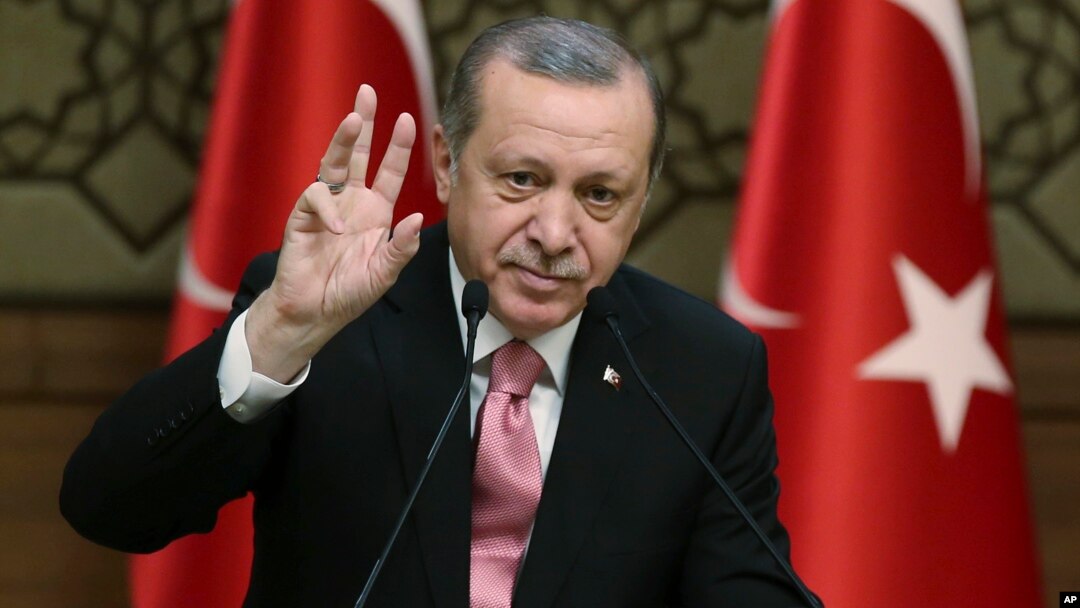Ankara rolled out the red carpet Thursday for U.S. Central Intelligence Agency Director Mike Pompeo, who met with Turkish President Recep Tayyip Erdogan, Prime Minister Binali Yildirim and his Turkish counterpart, Hakan Fidan.
Pompeo's visit follows Tuesday's telephone conversation between the U.S. and Turkish presidents, which both sides described as “productive.”
The fact that Pompeo chose Turkey as the first country to visit after his appointment, according to analysts, should be appreciated by Ankara, which is still smarting over what it perceives as persistently being snubbed by the Obama administration.
“It is important, the visit, and it's not being taken lightly in Ankara at all,” observes political columnist Semih Idiz of Al Monitor website. “It does give the impression, whatever strains there are, that both sides are going to try to see what commonality they can find in their approaches to the various issues of importance to the two countries.”

Mike Pompeo testifies before a Senate Intelligence hearing on his nomination of to be become director of the CIA in Washington, Jan. 12, 2017.
Split over Syrian Kurdish militia
Washington's ongoing support of the Syrian Kurdish militia (YPG) in its fight against Islamic State reportedly was one of the main themes of the CIA director's talks. Ankara is calling for an end to that support, accusing the YPG of being an extension of the Kurdistan Workers Party (PKK), which is fighting the Turkish state and is designated as a terrorist organization by both the United States and European Union. Erdogan repeatedly has said Turkish forces could replace the YPG.
Turkish foreign minister Mevlut Cavusoglu on Wednesday suggested a breakthrough ahead of Pompeo's visit.
“On the issue of fighting Daesh [Islamic State], we — that is Turkey and Saudi Arabia — will be cooperating with the United States,” Cavusoglu said. “We believe that the fight from now on will be more effective and that we will be able to clear both Syria and Iraq of Daesh."
Analysts point out that many in Washington, and especially in the Pentagon, are unlikely to be ready to abandon the YPG. They continue to see the Kurdish militia as the most effective force in fighting Islamic State. The militia, working closely with U.S. special forces, currently are marching on the Syrian City of Raqqa, the jihadist's self-declared capital.
Turkish forces supporting elements of the Free Syrian Army remain bogged down in fighting to capture from Islamic State the Syrian town of al-Bab. Despite repeated promises of its imminent fall by President Erdogan, the jihadists continue to hold out.
“Al-Bab proved to be a far harder nut to crack than anticipated,” said international relations expert Soli Ozel of Istanbul's Kadir Has University.
Turkey's Prime Minister Binali Yildirim speaks during a press conference with German Chancellor Angela Merkel after their meeting in Ankara, Feb. 2, 2017.
Friendly fire claims three soldiers
Turkish efforts received another blow Thursday when three soldiers were killed and 11 others wounded in so-called friendly fire by Russian airstrikes near al-Bab. Russian President Vladimir Putin offered his condolences to Erdogan in a telephone call, and both sides reportedly committed themselves to improving coordination in the fight for al-Bab.
Experts suggest Pompeo may have sought to find a compromise over the YPG.
“Trump during his campaign said he was going to try to get the Kurds and Turks to work together,” suggested columnist Idiz. “It's not easy because the Kurdish issue has domestic implications in Turkey. It's not only Syria. There is the question over Kurdish terrorism because we've had atrocities committed by the PKK here in Turkey.”
The situation is further complicated with an expected referendum in April to extend Erdogan's presidential powers. The Turkish president is campaigning on a platform of fighting terrorism. Experts suggest any softening of Ankara's stance is unlikely until after the vote.
FILE - U.S.-based cleric Fethullah Gulen at his home in Saylorsburg, Pa., July 29, 2016.
What about Gulen?
The fate of the U.S.-based cleric Fethullah Gulen, also is reported to have been raised during Pompeo's visit. Ankara is demanding the extradition of Gulen, who Erdogan blames for last July's failed coup. The failure of Washington to extradite Gulen has somewhat soured relations between the two countries. Experts point out, though, that Trump — like his predecessor Obama — has little room for maneuver since extradition ultimately is a legal, rather than a political, matter.
But analysts suggest the CIA chief's visit will raise Ankara's expectations of a gesture from Washington to help ease tensions.
“There is also a belief the new administration is ready to do more,” noted columnist Idiz, “that their might be a middle ground — like [Gulen’s] house arrest or surveillance that will mollify the Turks.”
The failed coup, and Gulen's presence in the U.S., remain a point of tension between Washington and Ankara. Senior Turkish ministers, along with much of the pro-government media, repeatedly have alleged Washington's involvement, a charge that has been consistently and strenuously denied.
The perceived slow response to condemn the coup, however, and tweets by some U.S. politicians who offered little support remains an open wound. One of most contentious and oft-reported was by Pompeo himself on the night of the coup, calling Turkey a “totalitarian Islamist dictatorship.” The tweet subsequently was deleted.


